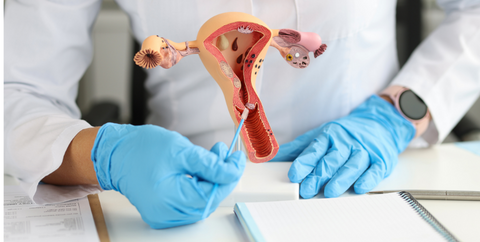Gynecologic Cancer Awareness Information
09 September, 2025
Gynecological cancers—including cervical, ovarian, uterine, vaginal and vulvar cancers—represent a significant burden on women’s health, with incidence and outcomes varying across populations. For clinicians and public health professionals, access to timely data and evidence-based resources is critical to improving prevention, early detection and treatment. The following information provides an overview of current trends and tools to support patient care and community health strategies.
Recognizing the signs and symptoms of gynecological cancers:
Uterine Cancer
- Abnormal vaginal bleeding (most common early symptom, including postmenopausal bleeding or bleeding between periods)
- Unusual vaginal discharge (watery or blood-tinged, often an early sign)
- Pelvic pain or pressure (more common in advanced stages)
- Pain during intercourse (advanced or progressing disease)
- Difficulty or pain with urination (advanced stages)
Ovarian Cancer
- Bloating or abdominal swelling (common early warning sign, though often overlooked)
- Pelvic or abdominal pain (frequent early symptom)
- Early satiety (feeling full quickly, early but nonspecific)
- Changes in bowel habits (constipation or diarrhea, sometimes early)
- Increased urinary urgency or frequency (may appear early)
- Unexplained fatigue (often later stage)
- Unintentional weight loss (advanced disease)
Cervical Cancer
- Abnormal vaginal bleeding (postcoital, intermenstrual, or postmenopausal — most common early sign)
- Unusual vaginal discharge (watery, pink, or foul-smelling — early)
- Pelvic pain (may appear later)
- Pain during intercourse (can occur early or with progression)
- Difficulty urinating or blood in urine (advanced disease)
- Leg swelling or back pain (advanced disease, due to obstruction)
Vaginal Cancer
- Abnormal vaginal bleeding (postmenopausal or after intercourse — common early sign)
- Watery vaginal discharge (early)
- Pelvic pain or mass (later stages)
- Pain during intercourse (early or progressing)
- Difficulty or pain with urination/defecation (advanced disease)
Vulvar Cancer
- Persistent itching, burning, or pain in the vulvar area (most common early warning sign)
- Changes in vulvar skin (color changes, thickening, or a lump/ulcer — early)
- Bleeding or discharge not related to menstruation (can occur early)
- A sore or growth on the vulva that does not heal (early)
- Painful urination or intercourse (progressing disease)
- Enlarged groin lymph nodes (advanced disease)
You May Also Like

New BRFSS data shows Nevada improving in cancer screening
01.29.2026
New data was recently published in the CDC's Behavioral Risk Factor Surveillance System, a phone survey of Americans covering a variety of health

A new option for cervical cancer screening: What at-home self-collection means for Nevada
12.22.2025
Cervical cancer screening in the U.S.

2026 Cervical Health Month Resources
11.25.2025
Cervical Health Month 2026 offers an opportunity for Nevada’s healthcare and public health professionals to refocus attention on evidence-based pr